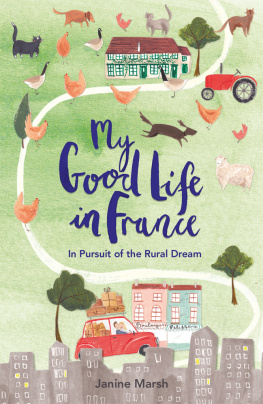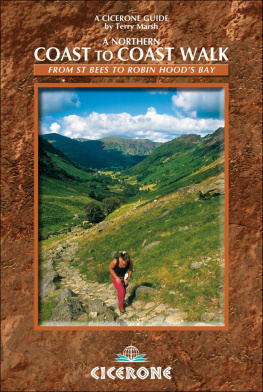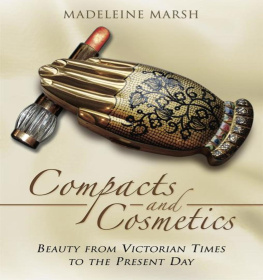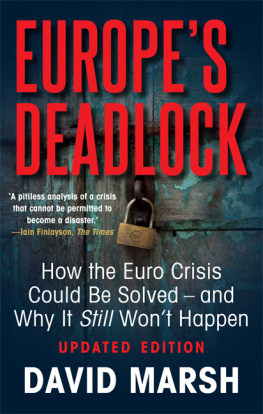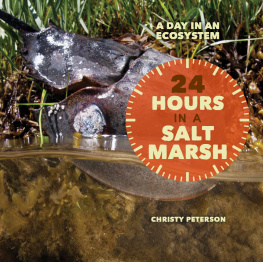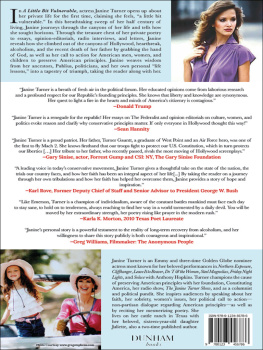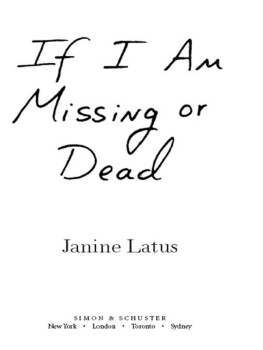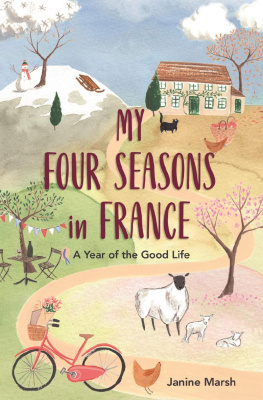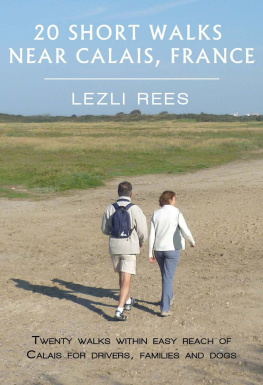First published in Great Britain in 2017 by
Michael OMara Books Limited
9 Lion Yard
Tremadoc Road
London SW4 7NQ
Copyright Janine Marsh 2017
All rights reserved. You may not copy, store, distribute, transmit, reproduce or otherwise make available this publication (or any part of it) in any form, or by any means (electronic, digital, optical, mechanical, photocopying, recording or otherwise), without the prior written permission of the publisher. Any person who does any unauthorized act in relation to this publication may be liable to criminal prosecution and civil claims for damages.
A CIP catalogue record for this book is available from the British Library.
ISBN: 978-1-78243-732-1 in paperback print format
ISBN: 978-1-78243-733-8 in ebook format
Follow us on Twitter @OMaraBooks
www.mombooks.com
Contents
OVER THE YEARS , Ive met and interviewed many expats living in France, and they seem to fall into three distinct categories.
Group 1 Retirees
Retired expats go to France for the good life wine, food, weather, healthcare, quality of life. Some of them are comfortably off, others less so. They are generally a happy bunch who make the most of whats on offer even on a budget.
Group 2 Escapees
Those who are running away from something back home, perhaps a failed marriage or business, or they have lost their job. Going to France may be a long-held dream or not. This group also includes those who seek adventure in foreign lands. From what I see, the escape isnt quite as successful for this lot. The right attitude is needed and some of them dont find the life they seek, and may eventually return whence they came. Others fall under the spell of their new destination.
Group 3 Lifestyle Changees
Members of this group take a decision to move to France often because they have fallen in love with an area, a village they went to on holiday, a house that they knew could be a home like no other, the quality of life or all of the above.
In this group of expats, my favourites are those who fall in love with a derelict property that most people wouldnt even think of touching. In the heads of these dreamers is their own personal chteau (even if its a farmhouse), a vision of loveliness and a home that they feel they will cherish forever.
They buy old houses the French dont want because it costs a fortune to renovate them and make them watertight and warm. They seek dwellings with acres of land, which look wonderfully picturesque and offer a mental picture of liberating freedom and space away from the madding crowd.
They give up their jobs, homes and ties to family and friends to chase the dream of the good life in France and hope a little luck will come their way. They pack their worldly goods into a lorry, van, trailer or car. They squash confused pets and sometimes children in between suitcases and kitchen paraphernalia and head off into a rose-coloured sunset, cheerfully waving goodbye to their past lives, ready and willing to embrace a new life in France.
Not yet at retirement age they must plan to earn an income often having to swerve from a previous career path and be imaginative in how to use their skills and homes to earn money.
The fact that their home to be has no water, no electricity and no bathroom doesnt daunt them they plot and plan a way to live with these little challenges while they resolve them. No roof? No problem! Theyve never done much DIY before but they buy books and scour the internet for advice on how to re-roof, install windows, build walls, plaster a room and lay a floor
At some point, inevitably, they will realize that the wonderful house they fell in love with is a hovel, a money pit, a demanding creature that is never satisfied. The budget they had has long been swallowed up. They must double whatever figure they thought it would cost to renovate it. The bureaucratic nightmare of registering to live and work in France eats into their very soul.
The acres of land that offered so much freedom become a tiresome slog, requiring constant work: cutting grass, pruning trees, mending fences.
Relationships become strained each blames the other for the decision to give up what now seems like the best job in the world, civilization and comfort.
But, eventually, with luck and determination, the obstacles are overcome, the tedious paperwork is completed, the house slowly awakens like a phoenix rising from the flames and the course of happiness is regained.
The most successful expats Ive met in this group all share similar qualities they are very determined, bloody minded, hardworking, pragmatic, sanguine, flexible, and eventually learn to accept that sometimes things just dont go the way they planned. They open gtes and pop-up restaurants, write books, take on building work, teach English, learn a new skill, often in the creative sphere, and they work hard and earn far less than before, but they are happy.
They are also quite possibly a bit mad.
I am one of them, and this is my story of how I learned to be a successful expat in France.
Janine Marsh
IT WAS ON a cold, wet, grey and depressingly dismal day in February more than ten years ago that I took a day trip to France. It was to change my life.
I had taken a day off work from my job in a bank in London to go to Calais, northern France, to buy wine with my dad Frank and my husband Mark. I lived in south-east London, very close to my dad, so getting to France was easy. We had a choice of boat or train just an hours drive from home; after the first visit to Calais had proved to be so simple, we took to going regularly. Wed shop at one of the wine superstores, have lunch in the friendly town, mooch around the shops, try the local strong cheeses that can strip the fur off your tongue, and buy delicious cakes you just cant get outside of France. Then wed catch the boat or train back home. In the early years of the new millennium booze cruises, as they were called, were popular with Brits wanting to indulge in French liquids of all kinds. It was before the recession, and ferries crossing the Channel were full of people boasting theyd bought a bottle of wine for the cost of an egg.
On that February day it was cold; sleet was falling as we left London and the sky was a horrible grey colour, like someone had coloured it in with a lead pencil. We were bundled up in heavy coats, hats and gloves, the car heating was on full blast and we wondered if we were ever so slightly mad to go on a day trip to France in weather like this.
We went into the Majestic wine store in Calais. I had decided to introduce Dad to decent French wine to see if I could get him to cut down on the hard stuff hed started drinking more of. Dad annoyed as many people as he could, which was one of his favourite things to do. He would taste a wine and proclaim as loudly as possible that it was not dissimilar to gnats pee (he never spat it out, though). Eventually, he bought a case of robust Merlot and I dont doubt the patient sales team heaved a sigh of relief when we left.
On that miserable day, instead of having moules et frites (mussels and chips the most popular dish in northern France) for lunch in Calais as we usually did, we decided to venture further inland. We figured that if we drove somewhere within an hour of Calais, we would find a nice, typically French restaurant where we could enjoy a delicious lunch and have plenty of time to return to catch the ferry back to Dover. We salivated over the thought of a cosy brasserie with a friendly waiter and a chef in the kitchen who ought to have a Michelin star but was only really interested in producing great home-cooked authentic dishes for the locals.

